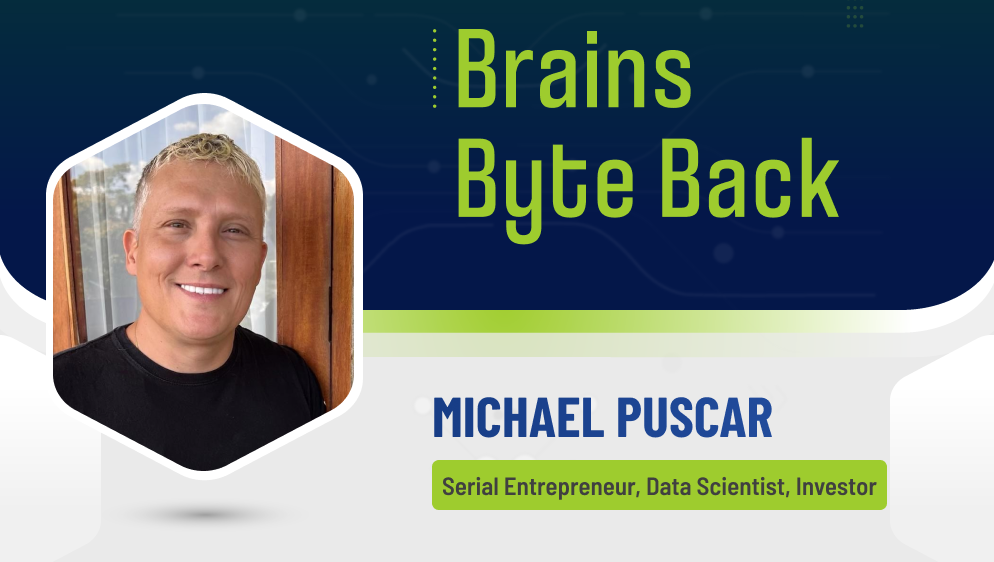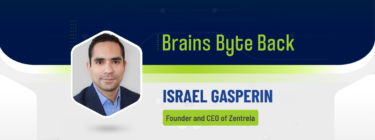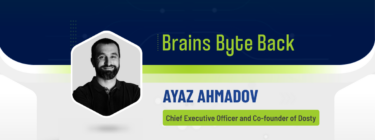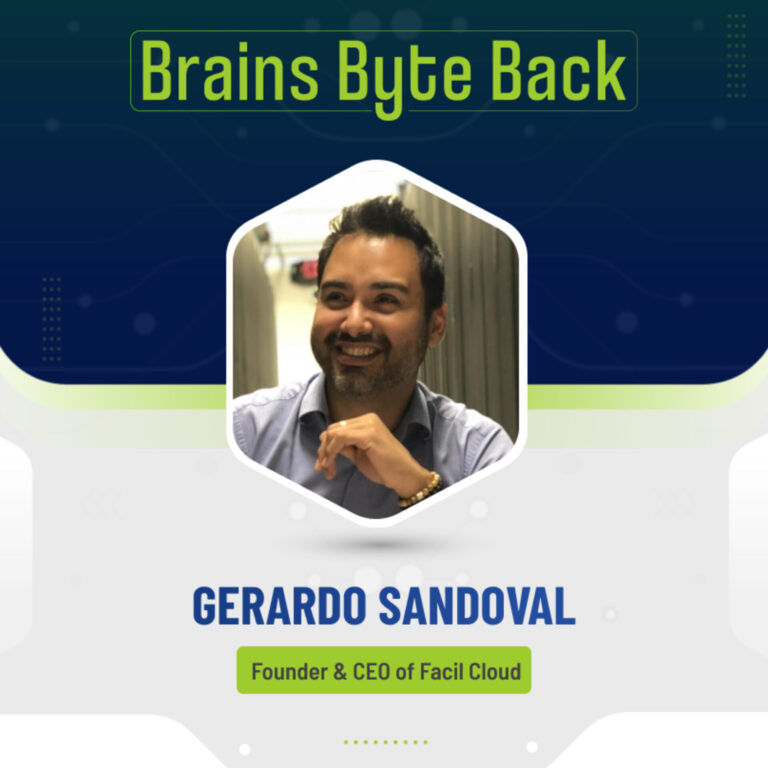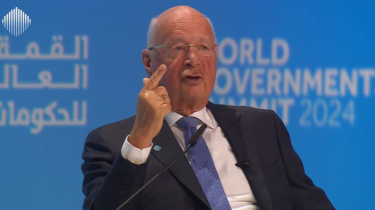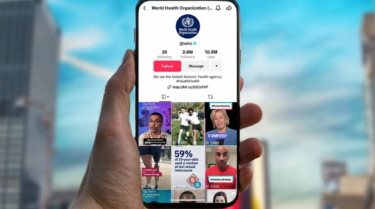In today’s episode of the podcast, we are once again joined by Michael Puscar, a Serial Entrepreneur, Data Scientist, Investor, Philanthropist, and the founder of NPCx.
Longtime listeners of the show will be familiar with Puscar, as he was previously on the show back in February 2020. Puscar kicks of the show by giving some background on himself for new listeners and shares what he has been up to since then.
Puscar briefly introduces his background as an AI expert and serial entrepreneur, and highlights that he has had three successful exits, most recently in May 2023.
Puscar then give us an update on Ziotag, a company where Michael was the CTO, and it was a key topic of the last episode together. Michael explains how Ziotag used AI to make videos more interactive and navigable, and discusses how generative AI models like ChatGPT disrupted the industry by performing content classification. He also talks about the patent he received for a unique natural language processing engine related to video transcripts.
Following this we talk about his new focus, NPCx, and its goal to enhance realism in video games. Puscar details how NPCX’s technology models characters’ movements and behaviors based on real human actions. He discusses the potential for NPCx technology to create video games that resemble animated films, and raises ethical concerns regarding the use of such technology and the potential for misuse.
And finally, Puscar talks about his charitable initiatives. In this part of the interview Puscar shares his belief in entrepreneurs giving back to the communities that support them. He talks about his initiatives supporting children, young mothers, and raising awareness about mast cell syndrome.
You can listen to the episode below, or on Spotify, Anchor, Apple Podcasts, Breaker, Google Podcasts, Stitcher, Overcast, Listen Notes, PodBean, and Radio Public.
Alternatively, you can find a transcript below:
Samuel Brake Guia: Hi Michael. I know you’ve been on the show a few years ago. But for those who are new, can you share a brief background on the work you’ve done in the past and what you’re working on today, please?
Michael Puscar: Sure, Sam. It’s really great to be back. My background is in artificial intelligence. I’ve been doing that for about 30 years, and I’m also a serial entrepreneur. I’ve had three successful exits. The most recent one was actually in May 2023. So maybe we’ll talk a little bit about that. But really, my background has been in natural language processing and neural networks, deploying artificial intelligence to innovate and create technology that impacts everyone’s lives. What’s happened in the last 10 years used to be mostly theoretical work from the ’90s, but we didn’t have enough computing power to execute it. So it was more theoretical and something out of science fiction. What’s happened in the last five years is the advent of cloud computing power and an explosion of data, which has made it available. Now, I’ve been able to take that and launch various products and build some really interesting technology. And that’s what I’ve been up to. AI is really changing and touching the lives of everyone on Earth right now.
Samuel Brake Guia: Thank you for coming back on. I really enjoyed our conversation last time, and you have such a wealth of knowledge on so many different topics. But one of the topics we discussed last time on the show was Ziotag, and I know that was something you were working on. Can you give us an update on Ziotag now?
Michael Puscar: So, for your listeners and for entrepreneurs, Ziotag is an interesting case study in what can happen when you start a business. You can have everything lined up, and it could be very successful, and it could still not succeed. So Ziotag really involved a group of people I worked with. For those who didn’t hear the first episode, Ziotag used artificial intelligence to make videos more interactive. How many times has someone sent you a video, and when you open it, it’s five hours long? I don’t have five hours to watch this video. We used artificial intelligence to process the video and automatically create a table of contents and add navigation. This way, you could see the video’s different sections and know exactly what each section was about. You could jump to a specific part of the video using this artificial intelligence.
Michael Puscar: What happened with Ziotag, unfortunately, is generative transformational neural networks, like ChatGPT disrupted so many industries and businesses without even intending to. We invested in technology to create that table of contents and perform content classification, and we were the first to do it in videos. Content classification has been a big industry for textual content. For those who don’t know, content classification involves taking unstructured text and categorizing it, like identifying whether it’s about sports, science, biology, cancer research, and so on. Ziotag was unique in doing it for videos.
Michael Puscar: However, generative AI like GPT and OpenAI’s models can now do content classification as a side effect of their capabilities. They can do things they weren’t explicitly designed for. For instance, you can input a transcript into GPT, and it will identify topics with 99% precision. ChatGPT has unintentionally disrupted a potentially great business model. Sometimes, in entrepreneurship, you create something amazing, but it turns out to be just a feature rather than a standalone product. Unfortunately, I’m not working with that company anymore, and it has transformed into something else, but that’s what happened.
Samuel Brake Guia: Yeah, I’ve said this before on the show, but it’s incredible how Chat GPT works its way into almost every conversation that I have here with my guests.
Samuel Brake Guia: It is exactly as you said. It has disrupted many areas. It’s incredible to talk about. But on the topic of Ziotag, I did want to say I understand that you were awarded a patent relating to the unique natural language processing engine that you developed for video transcripts. I mean, first, congratulations. Can you walk us through how this patent came to fruition?
Michael Puscar: Thank you very much. Patents have almost gone out of style, especially in the field of natural language processing. Once you have a patent in a technology, no one can ever take that away from you. So I would encourage all entrepreneurs and technologists to pursue patents aggressively to try to protect their innovations.
Michael Puscar: This particular patent I’m very proud of. It’s about being able to take massive amounts of unstructured data from libraries and books and use that data to create taxonomies for content classification. This is significant because it makes content more accessible and can lead to more effective content categorization. To create a taxonomy or categorization structure manually for unstructured content like PDFs can be extremely time-consuming and requires expert knowledge. My idea was to gather research papers and academic content from platforms like ResearchGate and scientific publishing and use that data to automatically create taxonomies for content classification. This could help content creators add relevant metadata, like hashtags, to their content, making it more discoverable.
Samuel Brake Guia: That sounds like a powerful tool, and congratulations on the patent. It’s always great to see innovation being protected. Now, I want to move on to the next topic I want to discuss. I have to admit I don’t know much about this, so I’m super excited to learn from you. Can you tell us about NPCx?
Michael Puscar: NPCx is my my latest venture, and I’m proud to announce that just this week we received a $1.5 million investment from a company based out of South Korea as part of our seed round. So, what NPCx does is it creates more realism in video games. For years, we’ve played video games like Call of Duty, where you control a character and it all looks pretty normal, right? Clearly, it’s a video game, but the characters look like humans, they move and interact. What NPCx technology does, it models the characters’ movement and intelligence. I’ll talk more about that later, but let’s start with the movement based on real human movements. So, you take movements from actors, their emotions, and actions, and you feed them to neural networks. When characters move in video games, it’s based on what the neural network tells them to do, rather than just following scripted logic. For example, in Call of Duty, if you’re running towards a wall, you’ll see your character running at full speed towards that wall. Then, when they hit the wall, they’ll be against it with their arms and legs still in motion as if they were running. That’s what I’m talking about. If you use NPCx technology, this won’t happen.
Michael Puscar: With NPCx, when you run towards the wall, your character will throw their hands up, slow down, and raise themselves against the wall in a more realistic manner. So, what we’re moving toward with NPCx, and there are several products, but this one in particular aims to make video games so realistic that they’re like watching an animated film. That’s essentially where we’re heading, and it has profound impacts across various industries.
Samuel Brake Guia: Yeah, this is something I’ve never really considered, but I do understand what you mean. As a former teenager obsessed with Call of Duty, I get it. I’m interested in what excites you about this technology and what concerns you because it does sound like it could lead to some Black Mirror-type scenarios.
Michael Puscar: You’re absolutely right. Unfortunately, humans tend to advance technology faster than ethics, and that’s something we’re very conscious of at NPCx. Whether it’s pharmaceuticals or Wi-Fi radiation, entrepreneurs often prioritize building first and dealing with consequences later. But with artificial intelligence, the consequences can be catastrophic. Some of the things we’re doing at NPCx, like creating realistic motion and mimicking human behavior, have profound implications. For instance, have you ever been playing a video game with friends, and at the last minute, one of them cancels because they have a date with their spouse? Imagine if we observed players in the real world and then incorporated their behavior into the game. If your friend couldn’t play, you could play with a clone that emulated their behavior.
Michael Puscar: This has great business potential, such as creating a marketplace for these clones or enabling players to compete with esports professionals. But if you think about it more broadly, we now have technology that can create super-realistic images and videos of people. Combine this with voice cloning, and you could potentially create fake conversations and interactions that are indistinguishable from reality. This poses ethical challenges, and if we don’t address them proactively, we could face disastrous consequences.
Samuel Brake Guia: Yeah, that does sound quite scary. I’ve seen those deepfake Joe Rogan interviews, and it’s unsettling. But technology is a tool, and it depends on how it’s used and the intentions behind it. It’s fascinating and alarming at the same time. Now, I’d like to shift our focus to the work you’re doing with charities. In addition to your for-profit work, you’re the co-founder of the Mast Cell Research Institute and have founded several non-profit groups in Colombia that support early childhood education and childcare services for single mothers. What drives you to support these causes, and can you share some examples of the impact these projects have made in their communities?
Michael Puscar: I believe that as entrepreneurs, we have an obligation to give back to the communities that support us. Our successes are built on the foundation of community infrastructure, such as roads and support networks. It’s only fair that we give back. When you engage your employees in charitable work, they see their employer in a different light. They realize the company cares not only about them but also about the community. It’s a powerful experience. I’ve had employees come back years later, reminiscing about the community work we did together. It’s truly rewarding.
Michael Puscar: We focus on three main areas: children, young women who become mothers at an early age, and raising awareness about mast cell syndrome. Regarding children, when I was 11, my family couldn’t afford a computer, but we managed to get a used Commodore 64. That computer changed my life, and I educated myself with it. I asked myself, “How many lives can I change by providing computers to kids who can’t afford them at a young age?” We visited schools in impoverished areas in Colombia, installed computers, and trained teachers. We gave kids computers to take home. It was incredible to see how this changed their lives. For young women who become mothers early, we provide childcare services to help them complete their education, which can drastically improve their future prospects.
Michael Puscar: The Mast Cell Research Institute, that’s a different initiative that has to do with them. A disease that is sort of a hidden epidemic that most don’t know about. I can’t remember the name of it, but Ryan Stevens, a brilliant guy based in Southwest Florida, really became a friend of mine. I love that guy like a brother. And he had this disorder, and it’s just that most people don’t know about it. So we could talk a little bit more if you like, but basically, it was about bringing awareness to it and talking about ways that folks can get treatment, first being aware that this is a problem they might have because it’s difficult to diagnose. And then, once you have it, being able to actually treat it.
Samuel Brake Guia: Yeah, what is it? I’m not familiar with it, and I’m not sure if our listeners might be. I’d be interested to know a bit more about it.
Michael Puscar: I’m not a scientist, but it’s effectively an autoimmune disorder, and it creates a lot of impacts on your day-to-day life, making you tired and sluggish. Headaches and depression are some of the symptoms. So, if I could rattle through the symptoms of this, you would say, “Okay, it’s not obvious that that’s mast cell syndrome.” But in fact, millions of people in the United States, for example, have mast cell disorders, affecting various systems in their bodies. The thing is, once you are diagnosed with it, then it becomes very easy to treat. There is a supplement available over the counter, which is part of it. Again, getting on the phone with that scientist, and he can walk you through how it works in more detail.
Michael Puscar: It’s one of those things where, first, you need to make people aware that it exists. If they’re experiencing symptoms, they can go to the Mast Cell Research Institute’s website and take a look. We’ve got a lot of information up there. And then, once it’s diagnosed, I mean, my good friend Ryan Stevens, who is at least the founder of these two organizations, he had it, and he was basically bedridden on some days. He couldn’t even think straight. But after he started treating it, he felt much better. The symptoms completely went away. So if we can talk about, whether it’s children or women, if you can go into the life of someone, reach in deep, and take them out of a dark place where they are and pull them out and help them, then that’s a beautiful, beautiful thing and a very rewarding thing.
Samuel Brake Guia: Yeah, that’s very inspiring. And I have to say, going back to what you mentioned about your own story and your own experience of getting your first computer, that was really wonderful. I didn’t know that about you, but it’s wonderful that it has had this domino effect on your life and your actions. And like you mentioned, talking about your friend, Ryan, it does seem like from my experience, and anyone that I’ve known who has dealt with chronic illness or chronic pain, there is this turning point when they’re able to actually put a label on it.
Samuel Brake Guia: So it’s fantastic to hear that you’re doing such great work in such diverse areas. I really hope that you’re able to continue this and that kind of leads me on to my next question. I want to know, what is next to you. What are you working on for the future? Michael
Michael Puscar: So I’d like to use the analogy of baseball. You only get so many at-bats. When you’re in your 20s and 30s, first, you start off working for another company, learning as much as you can. Then you start your entrepreneurial experience, and you probably face some failures, which can be disheartening. Then you may have some successes. If you’re lucky, by the way, entrepreneurship is hard, and I’ll tell you, I just sold one in May 2023. Starting a company is very, very tough. Getting it from survivability to significance is even more difficult. In other words, making it a profitable endeavor. I think through the exit, unbelievably hard. So for the people out there who can do that, I mean, great admiration, and it’s a lot of hard work, but you only get so many shots at it. So where I am, I think I’ve got maybe one or two more at-bats left.
Michael Puscar: So with Oiga now sold and NPCx, I really plan to double down and focus on NPCx. I think it’s a chance to leverage technology that’s being developed by a number of different people, and the ethics are so profound that. I really believe that I want to be the one who brings this technology to market because the person who gets there first really is going to have a chance to define the ethics and how we govern it and really think about the impacts of this on society. So, NPCx is very important to me, but I’m also working on my nonprofit work.
Michael Puscar: In parallel, my family, I have five kids, and I’m doing investing. So I have a family office, it’s called the Puscar Particular Family Office. My wife joined on board with me. And what we do is it’s just a socially driven family office, and we invest in the community and in small businesses. So it’s early-stage companies with less than, before revenue typically. So hopefully, my wife runs the charity side of the business, and I handle the arm of the business that invests in small startups. What I’m hoping to do is continue my work on NPCx, building an amazing product that could bring to market and hopefully change how video games are made and played, as well as animated film. On the investment side, it takes me back to when I was younger, and a lot of people helped me along the way. Hopefully, I can be there to help some folks, build their companies, get them started, and be successful. So that’s my goal.
Samuel Brake Guia: That’s a fantastic goal, and you’re doing so much. I mean, just the idea of keeping it going is ambitious in itself because you’ve literally done so much. It’s so cool to see, and it’s always wonderful chatting with you. Last question before you go, and this will probably resonate with the listeners who have heard the last episode that we spoke on, and if not, hopefully, it inspires them to go check it out. But have you been in any more plane crashes since we last spoke?
Michael Puscar: It’s so interesting because someone created a Wikipedia page, okay, I don’t frequent it. I’ve created three companies and had some success and had some failures, and I have all these charities. The top thing at the top of that page is the plane crash question. So everybody wants to talk about when they need support. I have not, technically. And I like to say, if you’ve been in a plane crash once, statistically, what’s the chance of being in another one, right? So I think probably with me, it’s actually one of the safest things that could possibly happen.
Samuel Brake Guia: That is, yeah. I mean, you’d like to think that. I mean, a plane crash is great. But certainly, if you get one under your belt, then, yeah. You’d like to think that. What are the chances? Exactly.
Michael Puscar: Well, honestly, Sam, the truth is, as a statistician and data scientist, the truth is the chances of having another plane crash are exactly the same as the first one. But I’d like to trick myself. Probability can play tricks on us, right?
Samuel Brake Guia: Mm-hmm. No, I get that. And, to be honest, I just try and push the thought of any kind of plane crash out of my mind.
Michael Puscar: Yeah.
Samuel Brake Guia: That’s why it’s crazy that I, having spoken to you, know that you’ve been in one. I mean, my dad is a flight attendant; he’s been flying for years, and he’s never experienced anything like that. So that gives me a lot of encouragement as well. He flies almost every day, and he’s fine. But I mean, just having someone like yourself who has experienced one, it’s statistically crazy.
Michael Puscar: Yeah, it is, it really is.
Samuel Brake Guia: So, Michael, if people are listening to this and they want to keep up to date with you and the work you’re doing, what is the best way for them to do that?
Michael Puscar: So I have the website, it’s puscarburitica.family. It may be easier if you Google it because the spelling is a little bit complicated. But there we keep updated on some of our outreach into the community, some investments that we’re making. And then for NPCx, it’s just NPCx, like an NPC dot AI. And I think there will be some really exciting announcements there in the next couple of months.
Michael Anthony Puscar: Sam, it’s been a great pleasure speaking with you as always!
Disclosure: This episode includes a client of an Espacio portfolio company



